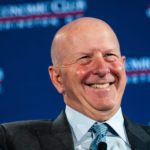The United States, the world’s largest economy, is expected to report its most impressive growth figures in nearly two years for the third quarter, driven by strong consumer spending. This presents a challenge for Federal Reserve officials who are currently weighing the need for further policy tightening. According to a Bloomberg survey of economists, the gross domestic product likely expanded at an annualized rate of 4.3% in July-September. This significant growth underscores the US’s position as a global economic powerhouse, especially when compared to Europe’s stagnation and Asia’s struggles, primarily due to China’s economic challenges.
Personal consumption, the primary engine of the US economy, is anticipated to increase at a rate of 4%. The sustained demand is putting the Fed officials to the test after almost two years of interest-rate hikes. Although inflation has receded from its peak, price pressures are still running at almost double the Fed’s target.

While Thursday’s GDP report may not be sufficient to push the Fed towards a November rate increase, continued spending momentum in the fourth quarter could increase the likelihood of additional tightening in the near future.
Federal Reserve Chair Jerome Powell mentioned, “Additional evidence of persistently above-trend growth or signs that the labor market is no longer improving could jeopardize progress on inflation and necessitate further tightening of monetary policy.” He made these remarks during a speech at the Economic Club of New York.
This week’s income and spending data for September will provide insights into the momentum of household demand and inflation heading into the fourth quarter. Forecasts suggest a 3.7% increase in the core personal consumption expenditures price index, which is one of the Fed’s preferred measures, as it excludes often volatile food and energy costs. This would be the smallest annual gain since May 2021, aligning with modest progress in controlling inflation.
Turning north, the Bank of Canada is set to announce its rate decision with fresh projections for inflation, growth, and economic risks. Governor Tiff Macklem is widely expected to maintain the current interest rate while suggesting that more hikes may be necessary in the future.
In Europe, the European Central Bank is likely to keep rates unchanged. Israeli officials are making their first decision since war broke out, and Chilean policymakers are expected to cut borrowing costs, while counterparts in Russia and Turkey are likely to implement significant interest rate hikes.









